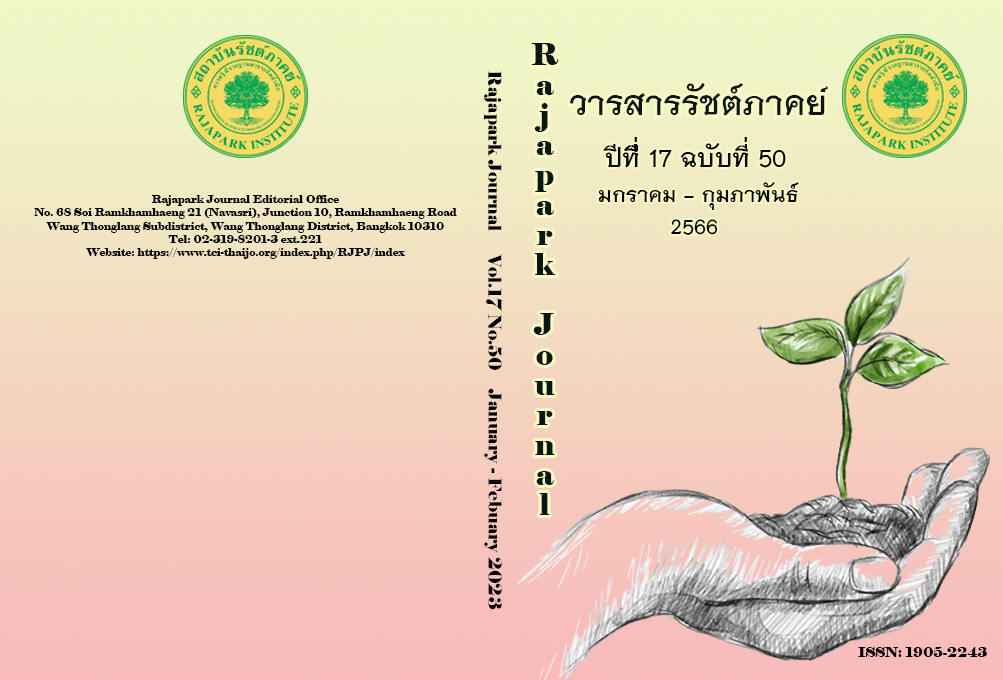การเปรียบเทียบระบบบริหารอาชีวศึกษาประเทศไทยและประเทศอุตสาหกรรมชั้นนำ
Main Article Content
บทคัดย่อ
การวิจัยครั้งนี้มีวัตถุประสงค์ 1) เพื่อศึกษาระบบบริหารอาชีวศึกษาประเทศไทยและประเทศอุตสาหกรรมชั้นนำ 2) เพื่อวิเคราะห์และเปรียบเทียบระบบการบริหารอาชีวศึกษาของประเทศไทยและประเทศอุตสาหกรรมชั้นนำตามองค์ประกอบและมิติ เป็นการวิจัยเชิงคุณภาพด้วยการสัมภาษณ์เชิงลึกและการสนทนากลุ่มกับกลุ่มผู้เชี่ยวชาญด้านกำหนดนโยบาย กลุ่มผู้เชี่ยวชาญด้านการบริหารสถานศึกษา และกลุ่มผู้ประกอบการ องค์กรหน่วยงานที่ใช้แรงงานอาชีวศึกษา โดยใช้วิธีการเลือกแบบเจาะจง จำนวน 9 คน เครื่องมือที่ใช้ในการวิจัยเป็นแนวข้อคำถามในการสัมภาษณ์และสนทนากลุ่ม ผลการวิจัยพบว่า องค์ประกอบของระบบอาชีวศึกษา ได้แก่ 1) นโยบายการจัดการอาชีวศึกษา ทุกประเทศมีีจุดเน้นร่วมกัน คือ การมุ่งให้ผู้เรียนมีการเรียนรู้และพัฒนาความรู้ทักษะอย่างต่อเนื่องด้วยแนวทาง Life Long Learning 2) โครงสร้างระบบอาชีวศึกษา รูปแบบการบริหารจัดการประเทศไทยเป็นแบบศูนย์อำนาจ ส่วนประเทศอุตสาหกรรมชั้นนำเป็นแบบกระจายอำนาจทำให้การขับเคลื่อนในการพัฒนาประเทศมีความโดดเด่นและก้าวหน้า 3) หลักสูตรอาชีวศึกษาควรจัดทำหลักสูตรให้สอดคล้องกับนโยบายของการจัดการศึกษา และให้องค์กรที่เกี่ยวข้องด้านวิชาชีพเข้ามามีส่วนร่วมในการจัดทำหลักสูตร เพื่อให้เกิดหลากหลายและทันสมัยดั่งเช่นประเทศอุตสาหกรรมชั้นนำ และ 4) การพัฒนาครู ควรต้องเพิ่มแนวทางการพัฒนาทักษะวิชาชีพครูให้มีประสิทธิภาพ เพื่อยกฐานระดับวิชาชีพครูให้มีความภาคภูมิใจและสนับสนุนส่งเสริมคุณภาพชีวิตอาชีพครู
Article Details

อนุญาตภายใต้เงื่อนไข Creative Commons Attribution-NonCommercial-NoDerivatives 4.0 International License.
ทัศนะและความคิดเห็นที่ปรากฏในวารสาร ถือเป็นความรับผิดชอบของผู้เขียนบทความนั้น และไม่ถือเป็นทัศนะและความรับผิดชอบของกองบรรณาธิการ
เอกสารอ้างอิง
Amarinthewa, W. (2022, Dec. 1). Take Lessons Abroad: Solve the Formula for Successful ‘Vocational Education’ to Become the Backbone of the Nation. Equitable Education Fund: EEF. http://eef.or.th/vocational-education-abroad/
Bereday, G.Z.F. (1967). Reflections on Comparative Methodology in Education, 1964-1966. Comparative Education, 3(3), 169-187. http://www.jstor.org/stable/3097986
Esser, F., & Vliegenthart, R. (2017). Comparative Research Methods. In J. Matthes, C. S. Davis & R. Potter (Eds.), The International Encyclopedia of Communication Research Methods (pp. 248-269). Wiley-Blackwell.
Jirathurapornsit, S., Chenaksara, N., & Intarak, P. (2018). The Comparative Study of Vocational Educational Administration in Thailand and Singapore. Pathumthani University Academic Journal, 10(1), 13-21. https://so05.tci-thaijo.org/index.php/ptujournal/article/view /178133/126710
Intarasopa, K., & Intarak, P. (2017). A Model of Private Vocational Education Administration for ASEAN Community. Technical Education Journal King Mongkut’s University of Technology North Bangkok, 8(1), 248-256. https://ojs.kmutnb.ac.th/index.php/jote/article/view/ 3320/2613
Office of the Vocational Education Commission. (2019). Vocational Education Management Criteria and Practices, Vol. 1. Office of the Vocational Education Commission.
Pandam, S. (2020). Strategies on Manpower Production of Vocational Education for Science and Technology in Industrial Field to Support Innovation-Based Economic Development. Journal of Technical Education Development King Mongkut’s University of Technology North Bangkok, 33(116), 22-28.
Phulsawasdi, W., Wetcha, P., Rattanachowong, P., & Tunkaew, S. (2018). Administration and Management of Technical to Enhance the Competitive Thailand’s Education 4.0 of CTECH Pacific Collage of Technology. Journal of Humanities and Social Sciences Valaya Alongkorn, 13(1), 8-16.
Pipatpol, K. (2014). The Success Factors of Vocational Education Management in Private Enterprises. Veridian E-Journal (International), 7(5), 36-46.
Prosser, C.A., & Allen, C.R. (1925). Vocational Education in a Democracy. Century Company.
Sitthipong, W. (2000). Technical and Vocational Education Philosophy. A.P. Graphic Design & Print.
Somboon, T., Lapcharoen, S., & Thanong, P. (2009). A Comparative Study of Vocational Education Management in Japan and Thailand[Research report, Ramkhamhaeng University]. http://www.researcher.ru.ac.th/Research_Action/0000000106_1.pdf
Wonganutaroj, P. (1999). Organization and Administration of Vocational Education. Bangkok Media Center.


